THE GRANADA THEATRE CIRCUIT
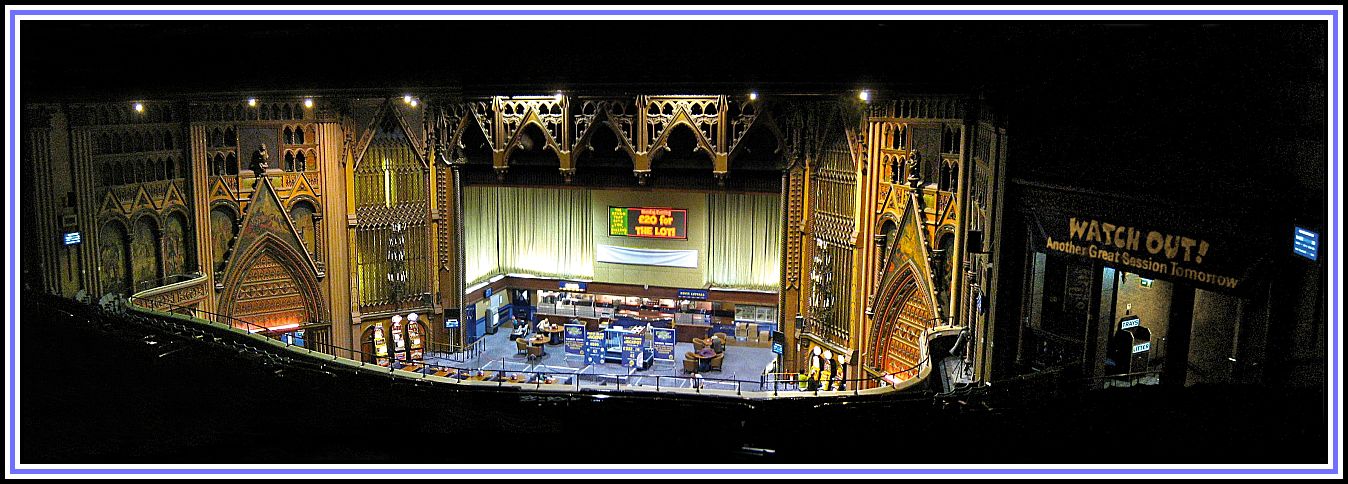 The Proscenium Arch, stage and part of the Auditorium of the Granada Theatre Tooting
The Proscenium Arch, stage and part of the Auditorium of the Granada Theatre Tooting
This panoramic view was produced by Peter Kurton
——oooOOOooo——
PART NINE: THE GRANADA THEATRE TOOTING
continued ……
THE BATTLE OVER THE FUTURE OF THE BUILDING
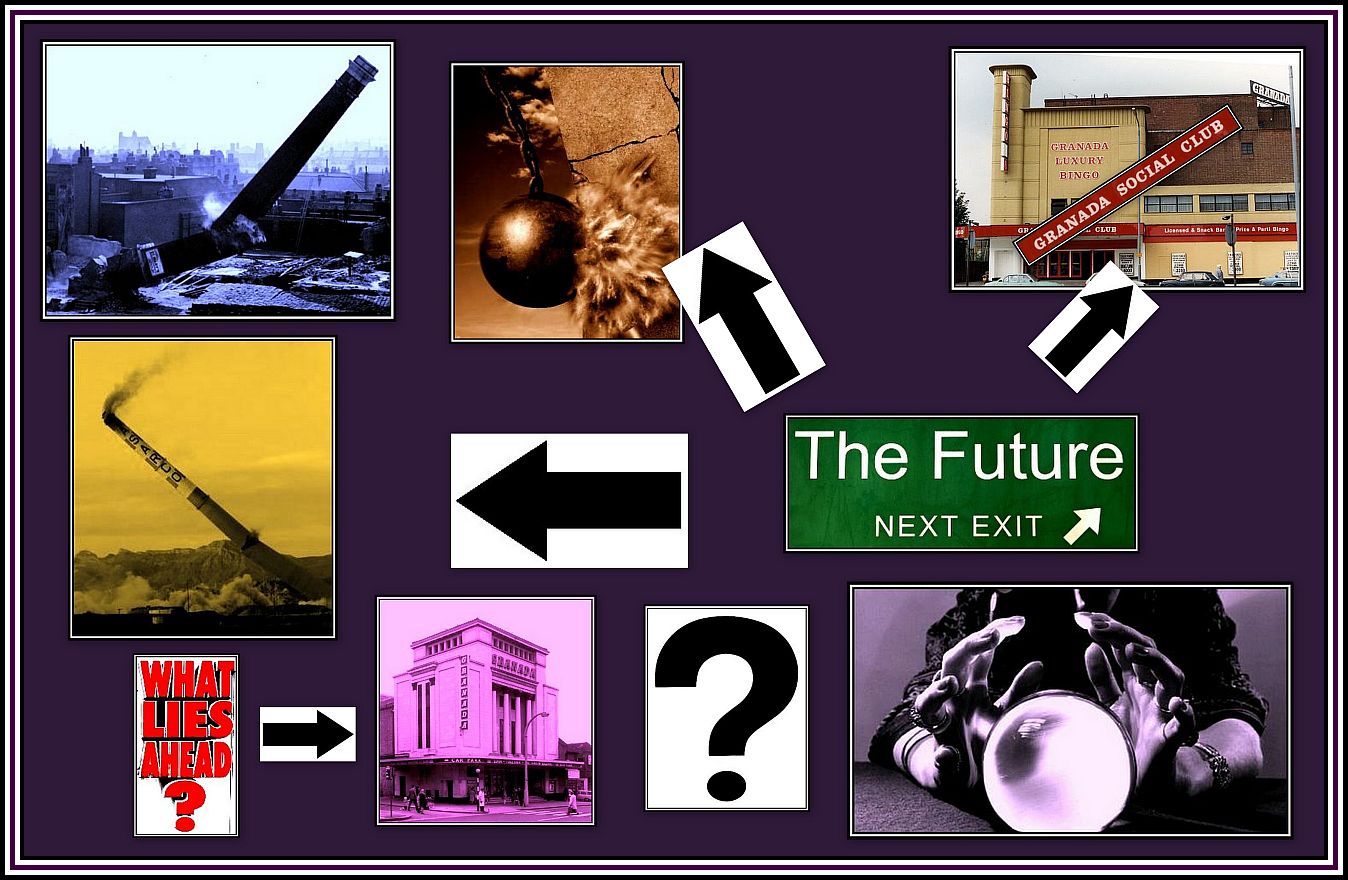 Que Sera Sera – Whatever will be, will be
Que Sera Sera – Whatever will be, will be
I have learned some important things since I started to write these pieces on The Granada Theatre Circuit. Two of the most important being that:
- I am not a businessman! and that
- at times, sentimentality can overwhelm clear thinking. This is not so much the case with people who were once in my life and now lost – but rather in relation to places and buildings long since demolished!
It isn’t that I do not care about people that I have lost contact with, because I do. It is perhaps more that I miss places and buildings that are associated with my past or for those that I have gained an interest in of late. Is it possible that I lack the gene that allows us to put people (and, I suppose, animals) before places and buildings? However, life is what it is and we have to make the best of what we have and play the cards that are dealt!
As a result, readers will know that I have waxed lyrical on my websites about an old lost cinema in Bethnal Green; a lost department store in Islington; and the Granada Theatre Circuit! to name but a few of my favourite things. Although I do recall being somewhat regretful about a dog in one tale! But, dear readers, you are not here to listen to me talk of my failings.
To be a successful businessman or businesswoman, one cannot be overly sentimental about inanimate objects, such as buildings.
At the onset of writing these pieces, I had obviously assumed, with absolutely no evidence I hasten to add, that the Bernsteins, both Sidney and Cecil, along with Theodore Komisarjevsky and Cecil Audrey Massey were proud of the theatres they had built. I assumed that they had built them with loving care, which I am sure they did, and with a hope that they would remain in use and would be lovingly maintained for future generations to admire and cherish.
What I failed to appreciate about the Bernsteins was they were businessmen and although they may have loved the theatres they built, they were not necessarily sentimental about them once their use became démodé.
 Business People & where Business is and was done
Business People & where Business is and was done
At the time of writing, if I had sat down and thought of the Bernstein’s reaction once the Granada Theatre Circuit fell on hard times, I would have imagined an exaggerated scene more suitable to theatre than reality. It might be something like this (apologies in advance) ……
……. Being brought up in the East End of London, I was surrounded by a large population of Orthodox Jews from an early age. As a result, I would have liked to think that the Bernsteins, now Hasidic in my imagination and dressed in black garments fashioned in the style worn by all Eastern-European Jews of the 17th Century, would be wailing and weeping once they learned of the fall in attendance to their theatres! I appreciate that this is a somewhat dramatic and unrealistic representation of the event, but I am prone to exaggeration especially when it comes to things I really like, and I really like the theatres of The Granada Theatre Circuit, and sadly, with something like this, I am incapable of stopping my imagination from running free! I ask forgiveness of those who are offended by anything I have written.
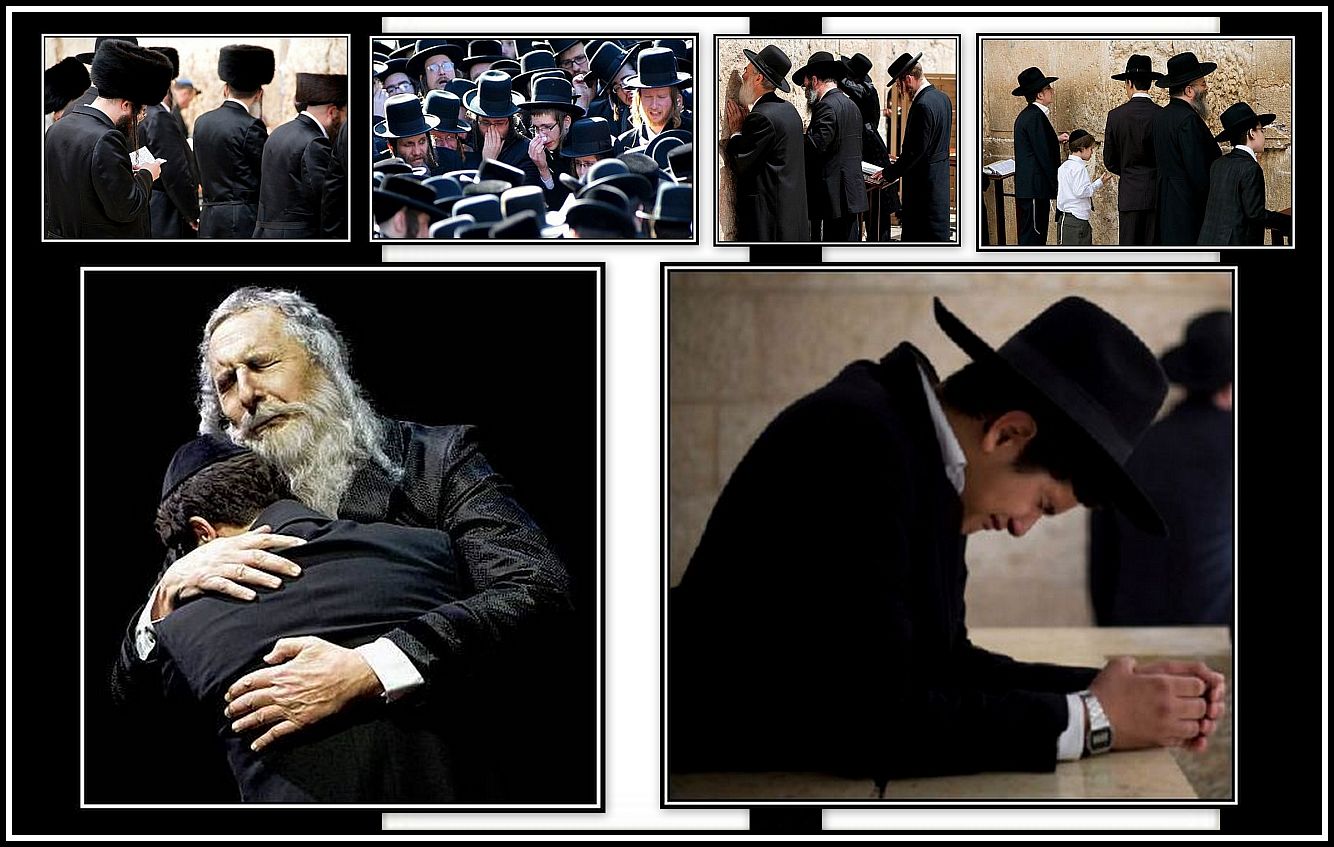 Hasidic Jews
Hasidic Jews
Top: at the Wailing Wall (The Western Wall; הַכֹּתֶל הַמַּעֲרָבִי)
Bottom: from stage productions of The Chosen
I would be equally as dramatic were I to consider Theodore Komisajevsky’s reaction to such news! In his case, being Russian, I would assume that his response would have been something akin to that of a Cossack in Czarist times! Once more I assume that he held the theatres close to his heart and, again I make the assumption that he had an emotional temperament and would have responded by drinking lots of водка (vodka) while weeping and leaping up at the slightest provocation and flinging himself into a wild dance while singing an old folk song at the top of his voice! Again, my imagination has run free and I apologise to anyone offended by my excesses.
Great and somewhat amusing scenes, no doubt! And ones which were evidently far from the truth, I do not doubt!
Being a businessman, Sidney Bernstein had obviously been thinking about the future of the flagship theatre prior to its closure as a cinema. But what does one do with such a place? This was indeed a puzzlement.
Mr. Bernstein had evidently dismissed the idea of converting the Granada Theatre Tooting into a Granada Social Club and allow Bingo to be offered. The reasoning for this decision is unclear: perhaps it was because the auditorium was considered too large for what was once assumed to be a cozy game or because the game was thought would not be popular with the populace of the area, which now consisted of a sizable Asian contingent.
At this time, twinning and tripling of cinemas had not come into vogue, but again, the very size of the auditorium would most certainly have precluded this from being a serious option.
Whatever plans Granada PLC had for its theatres, the future of the Granada Theatre Tooting was to become of the upmost importance by January 1972. What happened thereafter became somewhat of a battle between Granada PLC on one side and the Borough of Wandsworth and pressure groups on the other. The battle began with a suggestion following a lecture to a group of architects.
Seemingly a member of the staff of the Department of Historic Buildings at the Greater London Council GLC), Mr. David Atwell, gave a talk on The rise of the Super Cinema in London at the Royal Institute of British Architects in early January 1972.
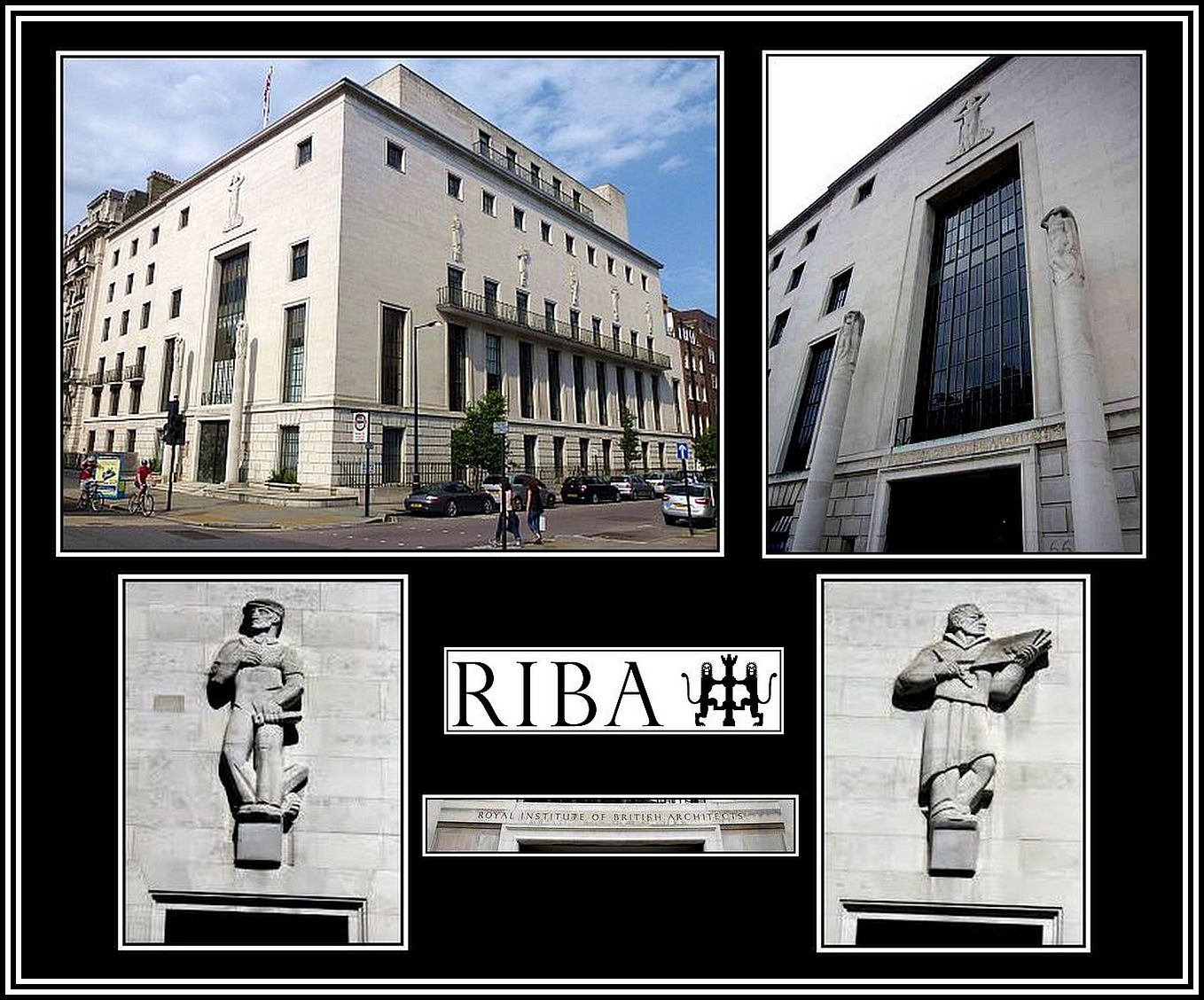 The Royal Institute of British Architects
The Royal Institute of British Architects
The lecturer, Mr. Atwell, said that the Granada Theatre Tooting and the New Victoria Cinema were ideal candidates, despite having out-lived their original use, for preservation based on their architecture. He added that his conclusion regarding the Granada Theatre Tooting was based mostly on an inspection of its interior.
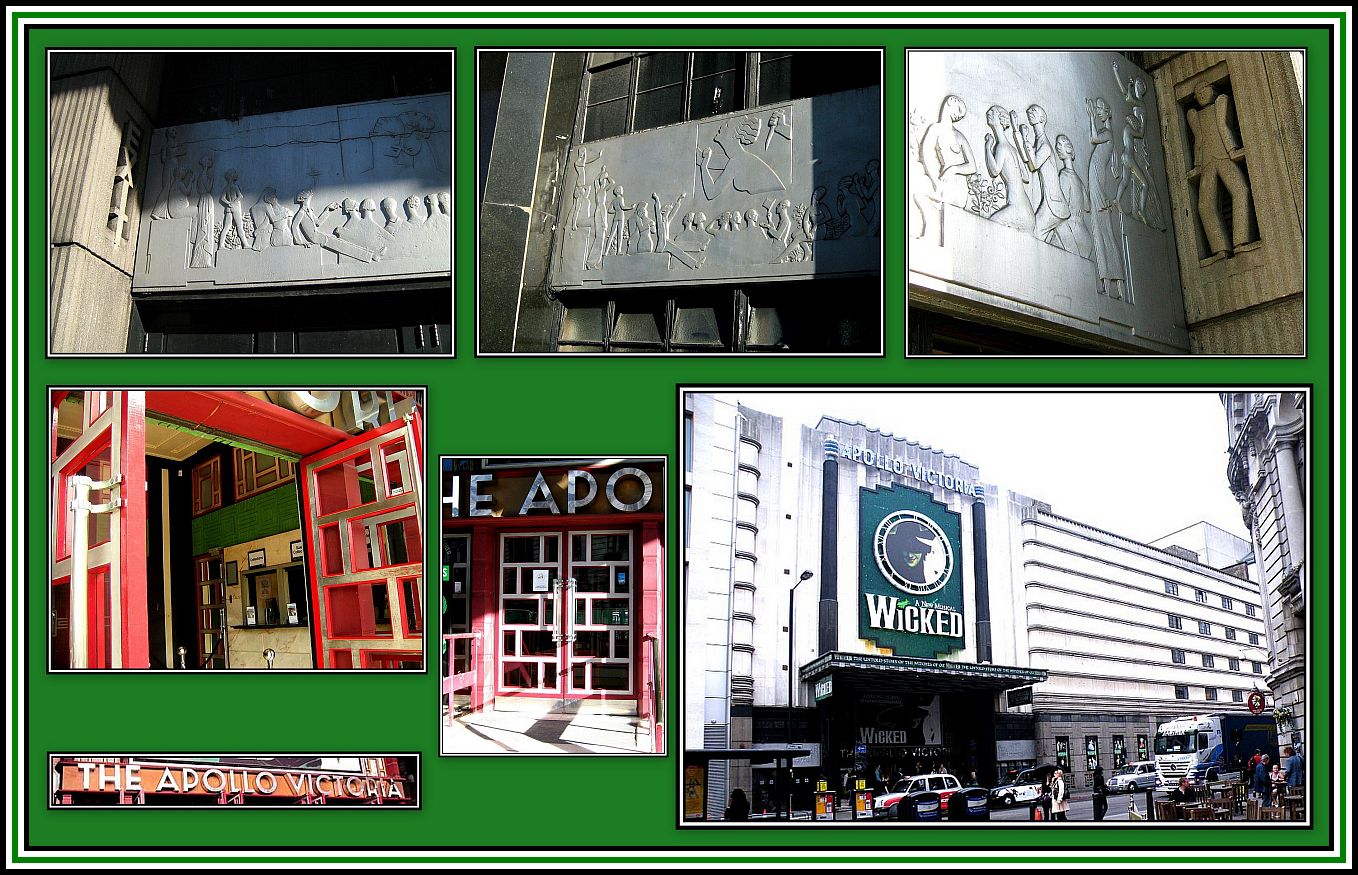 The erstwhile New Victoria Cinema built in 1930 and remained a cinema until 1976.
The erstwhile New Victoria Cinema built in 1930 and remained a cinema until 1976.
It was closed for five years and then reopened as the Apollo Victoria Theatre in 1981.
It was listed as a Grade II* building in 1972.
John Betjeman attended the lecture and immediately wrote to Mr. Bernstein to say that he was in complete agreement with this concept and that the theatre might well become his lasting monument.
 Statue of John Betjeman at St. Pancras Station,
Statue of John Betjeman at St. Pancras Station,
which he helped save from redevelopment.
Meanwhile, Mr. Bernstein received another piece of correspondence from Charles Stringer, who was managing director at Granada PLC at the time, and who also had attended the lecture given by Mr. Atwell. His correspondence informed Mr. Bernstein that there was now a movement afoot to make the Granada Theatre Tooting a protected building on the basis of its architectural merit. Mr. Stringer urged Mr. Bernstein to take this matter seriously and suggested that early demolition might need to be considered before the preservation movement gained too much support!
 Another exaggeration! Apologies once more
Another exaggeration! Apologies once more
Early demolition! When I read this my heart sank despite this having been written in 1972. Early demolition? It had never entered my head that anyone, friend or foe, would consider such an option. At first I was shocked to read that a member of the Granada establishment could consider such a thing ….. and then I was even more shocked to think that anyone would dare mention such a possibility to Mr. Bernstein himself! ……. and I was even more shocked and weak once I realised that Mr. Bernstein did not blow his stack, to say the least, at the audacity of such a proposal! And then it hit me!
We all have a favourite piece of clothing or an old pair of slippers that we continue to wear despite their being no longer fit for wearing. We develop an affection for these garments. I have heard some people say that such things are like old friends. We are even prepared to suffer unkind comments about this much-loved thing from so-called friends and loved ones and hold on to it despite these callous remarks.
 Old and much loved things (dog not necessarily included!
Old and much loved things (dog not necessarily included!
Why do we behave in this way? Old slippers are comfortable. They fit one’s feet perfectly. The same is true with an old jumper. We like these things and we want to keep them for as long as possible. Despite strong feelings of attachment the day eventually comes when we know we have to part with this most favoured of things. And what then do we do with these favourite things once even we know that their days are numbered? Why, we throw them in the bin! Although there is regret when, at last, a treasured possession is finally thrown away, but we do it and we move on and continue to live, eat, sleep and breathe without too much trouble.
By 1972, The Bernsteins had moved on and had long since realised that going to the pictures was no longer as important to the British Public as it once was. Granada PLC was now well entrenched in television with the Bernsteins being based in Manchester since 1956 once Granada Television was launched.
By this time, Sidney Bernstein was now Baron Bernstein of Leigh and was no longer chairman of Granada Television, but had moved across to the business side of the empire and held the title of Chairman of Granada PLC.
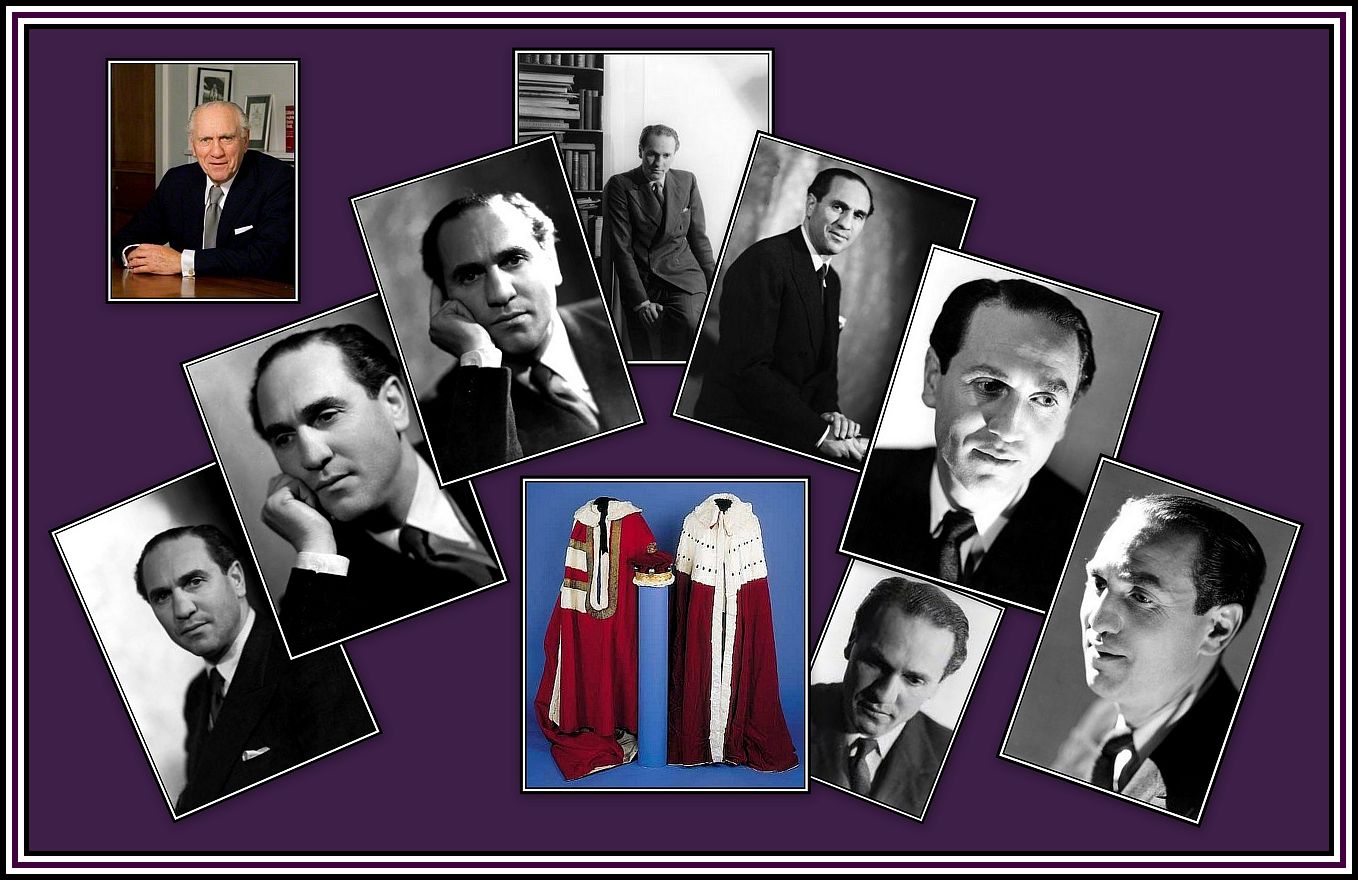 Official Photographs of Sidney Lewis Bernstein, First Baron Bernstein of Leigh
Official Photographs of Sidney Lewis Bernstein, First Baron Bernstein of Leigh
The colour photographs are of (Top) Sidney Bernstein in later life and
(Bottom), the official robes & coronet of the Baronetcy
Whatever Theodore Komisarjevsky might have thought of the proposal to preserve the Granada Theatre Tooting is moot since he had died in 1954. However I have the impression that he was not sentimental about the place. I believe that he had been intensely involved in its design and wanted to create something special, but once it was complete, his involvement ended and he moved on to other designs and other ventures.
And so I realised that despite whatever the Granada Theatre Circuit meant to the Bernsteins, they evidently had realised long before 1972 that its time had passed. They had entered the world of Commercial Television and got in at the ground floor. They held the franchise to the presenting television programming to a huge part of Northern England.
 Granada Montage
Granada Montage
This montage was reproduced with permission of ATV Today
Unlike with the Granada Theatre Circuit, Granada Television did not have to wheel-and-deal with film companies etc in order to ensure that they had good quality films to screen each week. Now they were equals among equals and were in a position to produced television programmes and offer them to other franchises in other areas of the country. I am sure that this was a position that both Bernsteins had hoped for during their cinema days. In addition being businessmen, they had to concern themselves with shareholders and their Board of Directors and perhaps could not afford to allow emotion to enter into decisions.
As I like to quote, and quote often ……… the moving finger having written, moves on.
“The Moving Finger writes: and, having writ,
Moves on: nor all thy Piety nor Wit
Shall lure it back to cancel half a Line,
Nor all thy Tears wash out a Word of it.”
From the The Rubáiyát of Omar Khayyám (Persian: رباعیات عمر خیام)
At any rate, the writing was on the wall for the Granada Theatre Tooting.
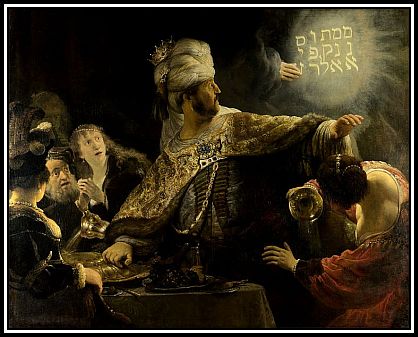 Belshazzar’s Feast (circa 1635) by Rembrandt
Belshazzar’s Feast (circa 1635) by Rembrandt
The subject’s source is found in the story of Belshazzar and the writing on the wall
in the Old Testament Book of Daniel (דָּנִיֵּאל)
Whatever the personal opinion of the Bernsteins regarding their theatres and any future wishes they might have had, Granada PLC evidently had some concern upon learning that the Granada Theatre Tooting could become a listed building. Without doubt, such a decision would have marked ramifications on what an owner could and could not do with such a building. As a result, Granada PLC sought advice as to what listing would mean to their building.
At the beginning of February 1972, the possibility of listing the building was by now common knowledge, and rumours began to circulate that the theatre was to be replaced by an office block.
I have not been able to find out what the replacement building was to look like
What followed next apparently annoyed Sidney Bernstein since it occurred before Granada PLC had offered their future plans for the Granada Theatre Tooting to the Council. On the 21st February, 1972, Wandsworth Borough Council served a Building Preservation Notice on the building. This notice meant that the Granada Tooting was now temporarily listed for a period of six months. During this time, the Minister at the Department of the Environment would consider the situation. In addition, the Council had failed to give Granada PLC any prior notification of its intention vis-à-vis the building.
Mr. Bernstein made it known that he was against the preservation order. When he met with a group of solicitors to discuss the notice, he apparently told them that he had been given an understanding that he was to be allowed to meet with the Ministry to discuss the matter before any decision was actually made. I can understand Mr. Bernstein’s reaction to the slapping on of a Preservation Notice under these conditions. It looks as if Granada PLC and the feelings and intentions of its Board were ignored by the Council.
Although I would have most certainly been in favour of preserving the building, I would not have been in agreement of ignoring the plans and ideas of those who actually owned the building in question.
Meanwhile public opinion was beginning to be heard. London’s Evening Standard published a list of buildings whose future was in jeopardy and their list included the Granada Theatre Tooting. The erstwhile Associated Rediffusion and later Thames Television programme, This Week, wanted to feature the theatre, however Granada PLC decided against allowing access to it during filming and no employee appeared in it.
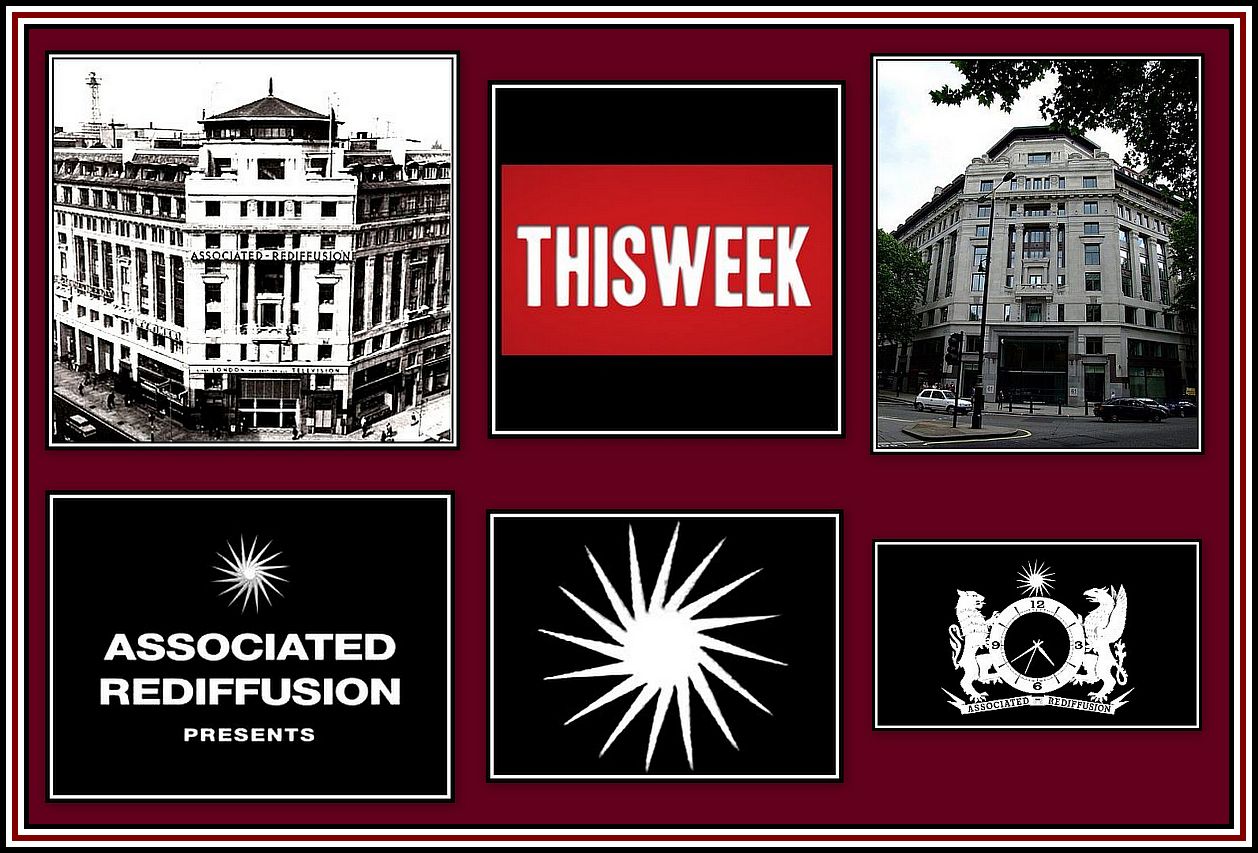 Memories of Associated Rediffusion (1955-1968)
Memories of Associated Rediffusion (1955-1968)
Top Left: Television House, Kingsway, formerly Adastral House;
Top Right: Adastral House today
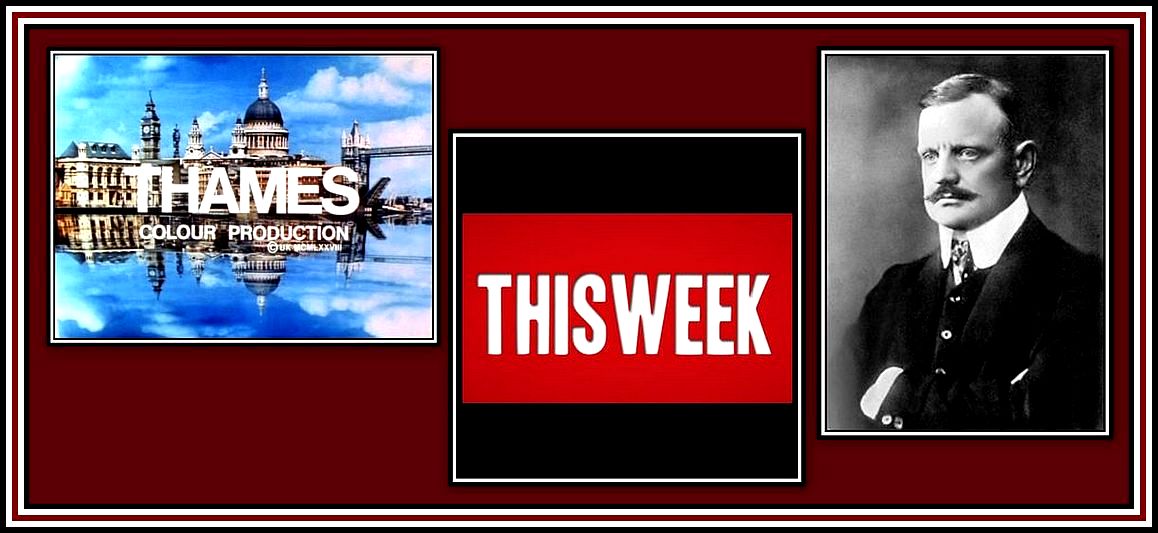 Thames Television (1968-1993)
Thames Television (1968-1993)
This Week was a current affairs programme seen weekly between 1956 and 1978.
The programme used the Intermezzo from Sibelius’s Karelia Suite as its signature tune.
My parents watched the programme while I was studying in my bedroom
and where I remember hearing the muffled sound of the music.
Years later, I heard it properly at a concert in Finlandia Hall in Helskinki.
In addition, readers were writing letters to the newspapers where they declared their loyalty to the theatre. Despite the public display of distress, it did not translate into an increase in attendance at the theatre where ticket sales continued to plummet. This was unfortunate indeed, as even I have to admit that without patronage, the theatre could not remain open for too long.
At this time, C.H. Elsom Pack & Roberts provided development plans for the theatre site. This included twelve floors of offices over a ground floor exhibition hall and an 800 seat basement cinema, which would include the Wurlitzer Organ from the old theatre. The inclusion of the organ was considered to be a strong point in favour of Granada PLC’s fight against the Preservation Notice. Mr. Bernstein proposed that the exhibition hall be used for a history of cinema and to include plasterwork and other decorative features from the old theatre. He also proposed that it included a scale model of the theatre, which was to cost £20,000.
C.H. Elsom Pack & Roberts also sought an expert for the writing of a report opposing the Preservation Notice. Finally, Mr. Bernstein requested a meeting with the Minister to discuss the whole matter in person.
Mr. Bernstein wrote a letter to the Minister of the Environment in May 1972. Here he clearly discusses the attendance at the theatre. He said that judging by the numbers of patrons the public had lost interest in seeing the interior of the building. He added that the building was from the 1930’s and did not represent any particular style of architecture, but was built purely and simply to offer the public something different. As a result, he insists that the building is neither a monument nor a museum and could only be of interest to those wanting to see films there.
In his letter to the Minister, Mr. Bernstein also discusses the exterior of the theatre and lets it be known that it was below our usual standard, a matter of great regret to us. Certainly the exterior is not as interesting as that of the Phoenix Theatre or the Granada Theatre Walthamstow, however it has an interesting design that stands unique among British cinemas.
Mr. Bernstein concludes his letter by stating that the theatre now stood was no longer a viable concern. He stressed that unless the site was redeveloped, it would close and any Preservation Notice would not stop it from standing empty and slowly decaying. Sadly this is what is happening with a number of listed cinema buildings in Britain. One has only to look at the once glorious ABC Essex Road to understand the reality of these words.
Mr. Bernstein ended his letter by saying that Granada PLC was interested in cinemas and that they wanted to provide suitable facilities to those still interested in watching film. He believed that their plans for the redevelopment of the site would provide the necessary facilities to meet the needs of the present day requirements of the area.
One month after receiving this letter, the Department of the Environment listed the Granada Theatre Tooting as a Grade II* building. A Grade II* listing was granted rarely. The Department stated that such a listing was considered for its interior, probably the finest example in England of a Super Cinema. (Well ……… we all knew that, didn’t we?)
By August 1972, Mr. Bernstein paid a visit to the Town Clerk and the Chairman of the Planning Committee of the Borough of Wandsworth and discussed on redeveloping part of the site as a way of compensating Granada PLC for the financial loss in retaining the auditorium. Apparently the proposed plan was well received by the Borough’s Technical Services. It was not until January 1974 that Granada PLC was informed that their proposal for the redevelopment of the site in part was rejected.
Meanwhile while Granada PLC waited to hear this news, despite talk and rumours of demolition, attendance to the theatre failed to improve and in October 1973, Granada PLC began to look at the legal ramifications of closing a listed building.
On the 7th November, 1973, Mr. Bernstein and the company secretary met with the Executive and Chief Clerk of the Borough together with other council officers for further discussion. Whatever was said and either agreed or disagreed upon, an order was issued to the staff of the Granada Theatre Tooting that the establishment would be closing on the 10th November, 1973. Once the building was closed, Granada PLC hired a security firm to check the building and who received £55.00 each week for this service.
The closure of the theatre aroused harsh public criticism. People wrote angry letters to the newspapers with most being directed at Mr. Bernstein. A number of action groups were formed with one wanted the building to be turned into a Cultural and Community Centre. The criticism of Mr. Bernstein grew in intensity and he sought legal advice for possible libel action. Although he was informed that he had grounds to take legal action, he was advised not to do so.
Meanwhile a disagreement developed between the Greater London Council (GLC) and Granada PLC over the canopy at the front of the theatre. Apparently Granada PLC had chosen to remove it when it was damaged rather than repair it. In 1974, the GLC insisted that it be repaired and reinstated since they considered it as an original part of the theatre, which was now a listed building. Granada PLC did not take the position that the canopy and also the organ were permanent parts of the building and refused.
Time passed and the situation between the various groups with an interest in the Granada Theatre Tooting remained entrenched and no one looked as if they were going to budge ………. or so it would seem!
As I have said, the Bernsteins were businessmen and, as such, were pragmatic. In 1975, Ladbroke considered submitting an application to convert the ABC Tooting into a Bingo Club, but later decided against doing so. This news may have been the nudge necessary for Granada PLC to reconsider its viewpoint regarding Bingo at the Granada Theatre Tooting. The company did reconsider and on the 22nd August, 1975, a planning application to convert the theatre into a Bingo Club was submitted to Wandsworth Borough Council. By April 1976, Listed Building consent was granted and Granada PLC was then allowed to install a temporary flat floor over the stalls and orchestra pit and to remove the stalls seats, along with metal installations and handrails and put them into storage.
 ‘I take it that it is a yes? ……’
‘I take it that it is a yes? ……’
It is said that Granada PLC spent £400,000 to convert the theatre into a Granada Social Club. The club opened to the public on the 14th October, 1976 with some 20,000 people taking out membership prior to the opening. As Mr. Eyes says in his book, the theatre suddenly became an asset again. Everyone seemed happy!
The Granada Social Club Tooting eventually would have 100,000 members with an annual admission of 750,000. It was to become Granada PLC’s most successful Social Club and often had over 2,000 patrons in an evening.
In the late 1980’s, Granada PLC seemingly considered entering the Multiplex market. However it is believed that none of the Members of the Board was especially keen. At this time, the company was apparently less and less interested in the theatre business. Cannon had recently taken over the Classic and ABC Circuits and made an offer of £3.3 million to purchase the remaining Granada Theatres. This sum was considered to be extravagant offer and too good to refuse and by January 1989, the deal had been finalised and soon the names of all erstwhile Granada Theatres was changed to Cannon.
In 1991, Granada PLC found itself with a cash flow problem. The company had invested a great deal of capital in satellite broadcasting, which was yet to be making a profit and found itself in need of cash. According to Alec Bernstein, Cecil Bernstein’s son, who was now in charge of the company, they did not have any sentiment regarding Bingo. Granada PLC entered into lengthy discussions with Bass, also the owner of a Bingo chain, Gala, about forming a joint company. However, Granada PLC eventually decided against this proposal, and in May 1991, the company decided to sell the Granada Bingo Clubs outright to Bass for £147 million.
As a result of the sale, the Granada Social Club Tooting now became the Gala Tooting and long may it remain so. A final point: eventually the listing, now overseen by English Heritage, decided to upgrade the building’s status to Grade I, making it the first building of its kind to be granted so prestigious a listing.
——oooOOOooo——
ACKNOWLEDGEMENT
Most of the information regarding the events described here that led to the closure of the Granada Theatre Tooting as a cinema and its subsequent reopening as a Granada Social Club and eventual sale of the clubs was obtained from The Granada Theatres by Allen Eyles (Cinema Theatre Association, CTA; British Film Institute, BFI).
——oooOOOooo——
Where an opinion is expressed, it is purely that of my own.
——oooOOOooo——
Click here to go to THE VILLAGE OF SALVADOR
——oooOOOooo——
Click here to return to PART NINE: THE GRANADA THEATRE TOOTING
——oooOOOooo——
Click here to go to PART TEN: STARTING A CIRCUIT
——oooOOOooo——
Click here to return to PART EIGHT: THE PHOENIX THEATRE LONDON
——oooOOOooo——
Click here to return to THE GRANADA THEATRE CIRCUIT
Home Page
——oooOOOooo——
Click here to return to the TABLE OF CONTENTS
——oooOOOooo——

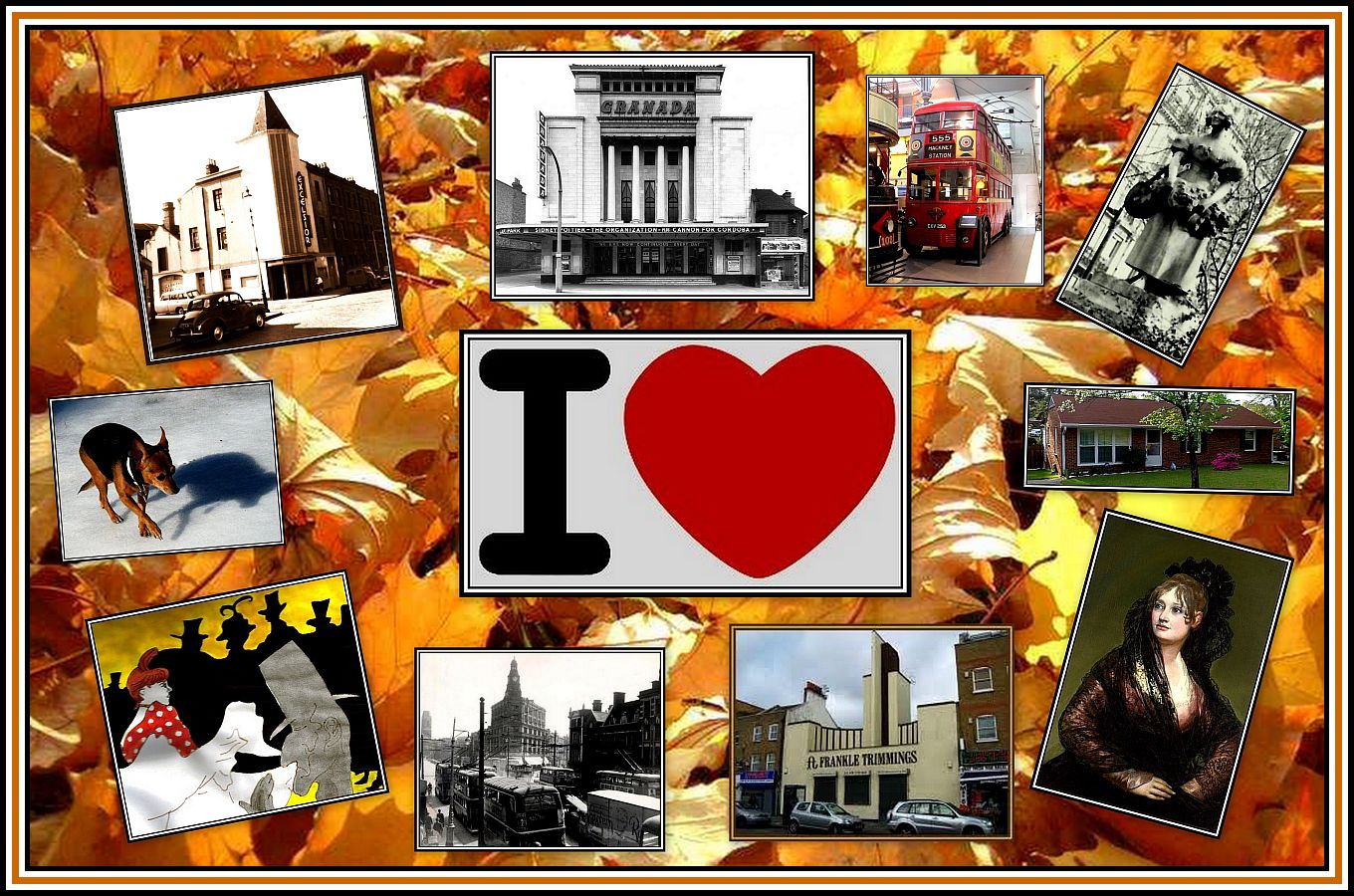

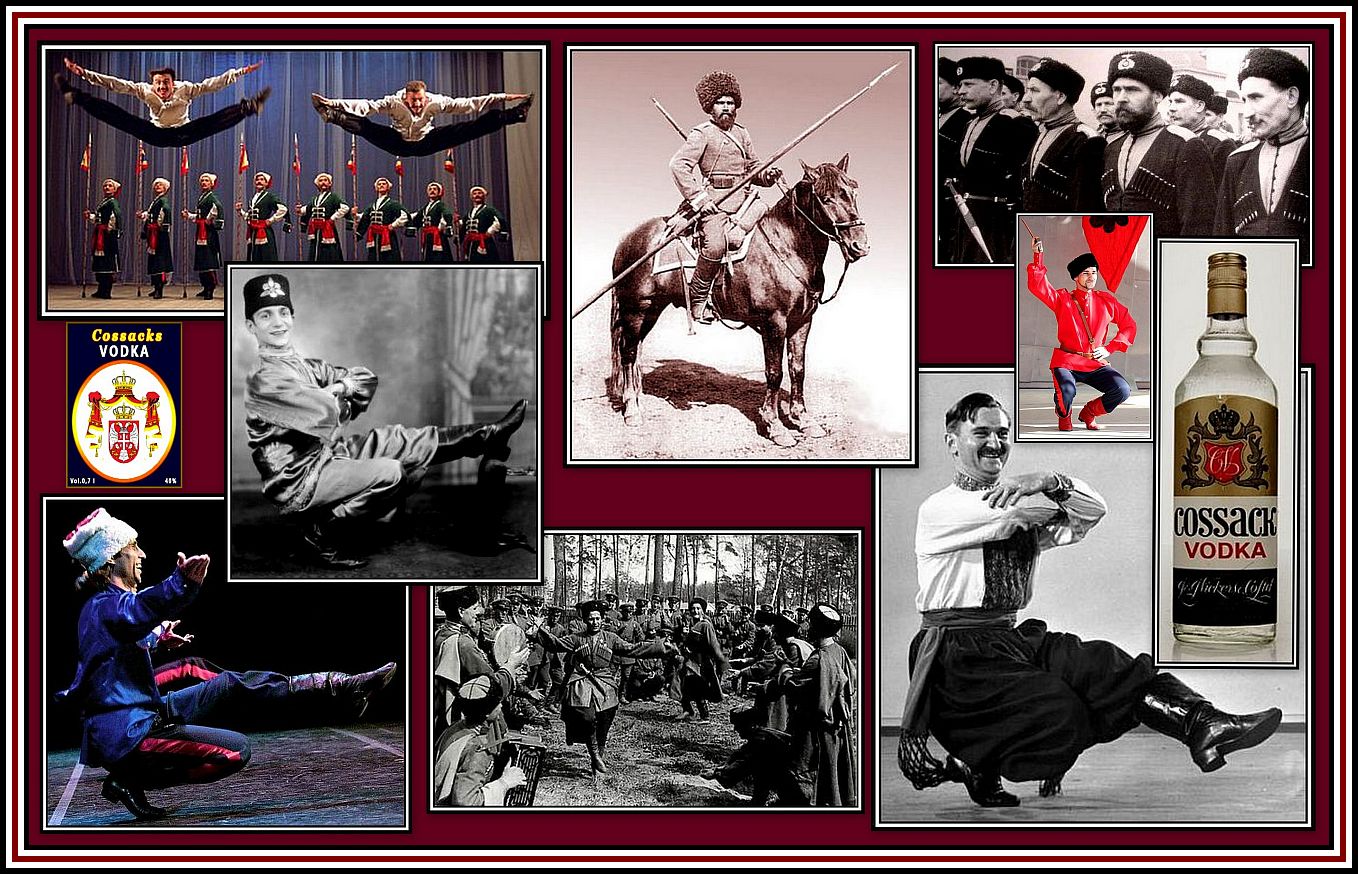

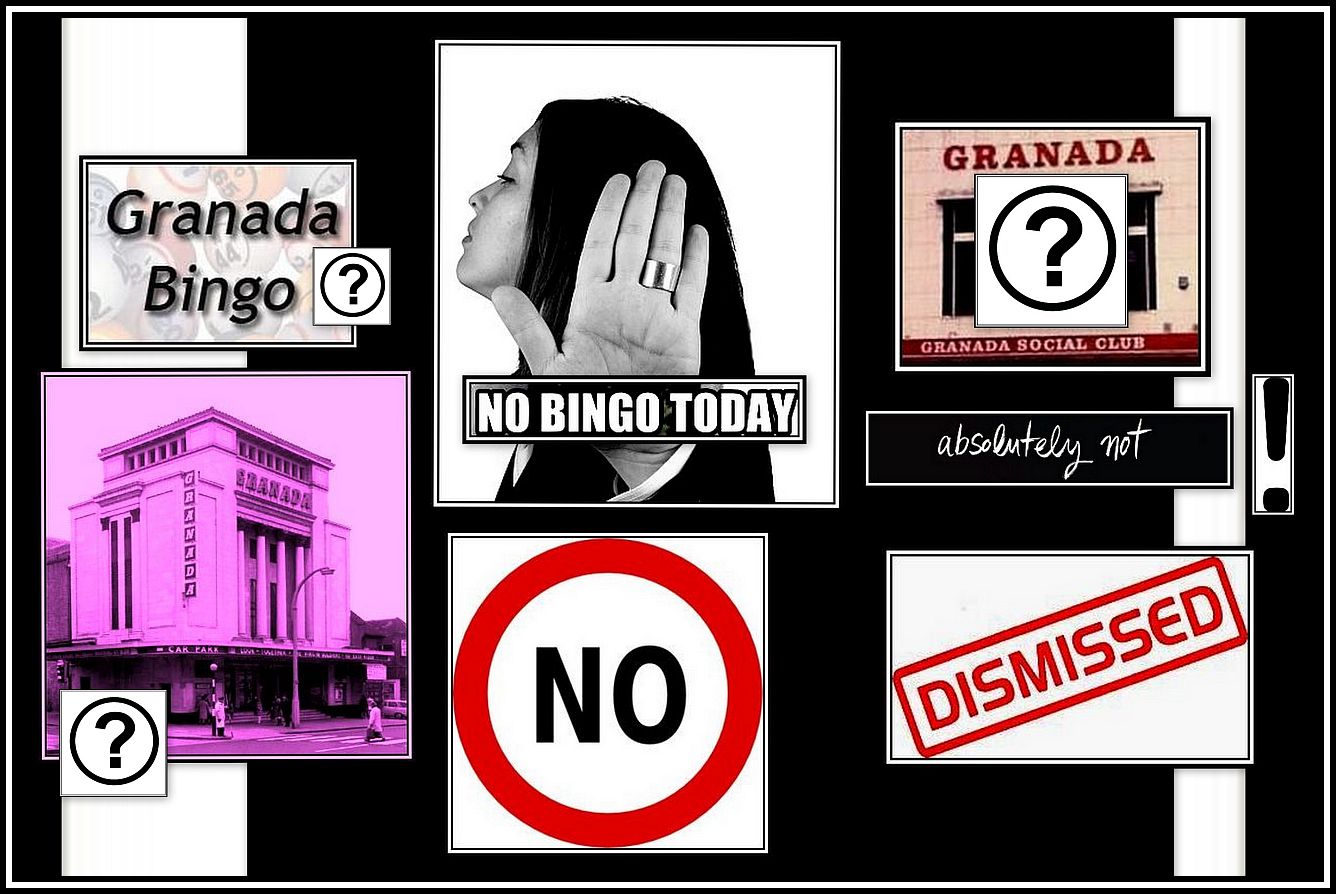


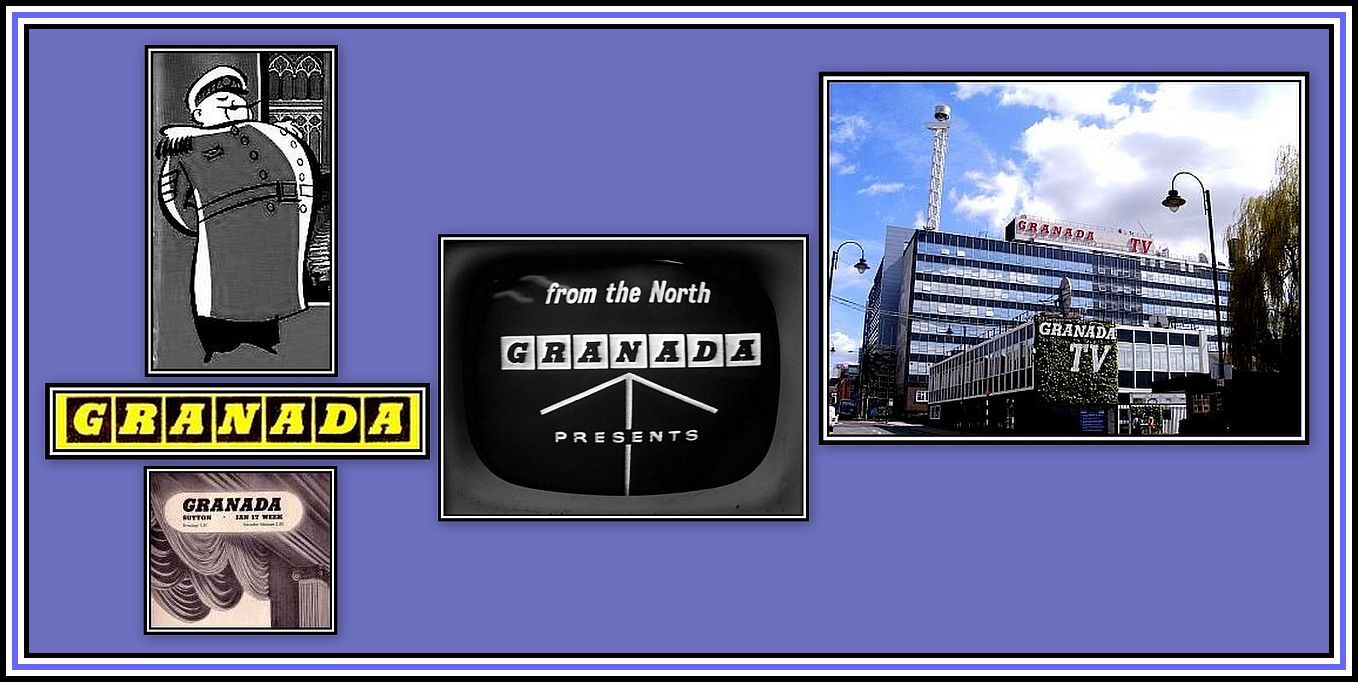
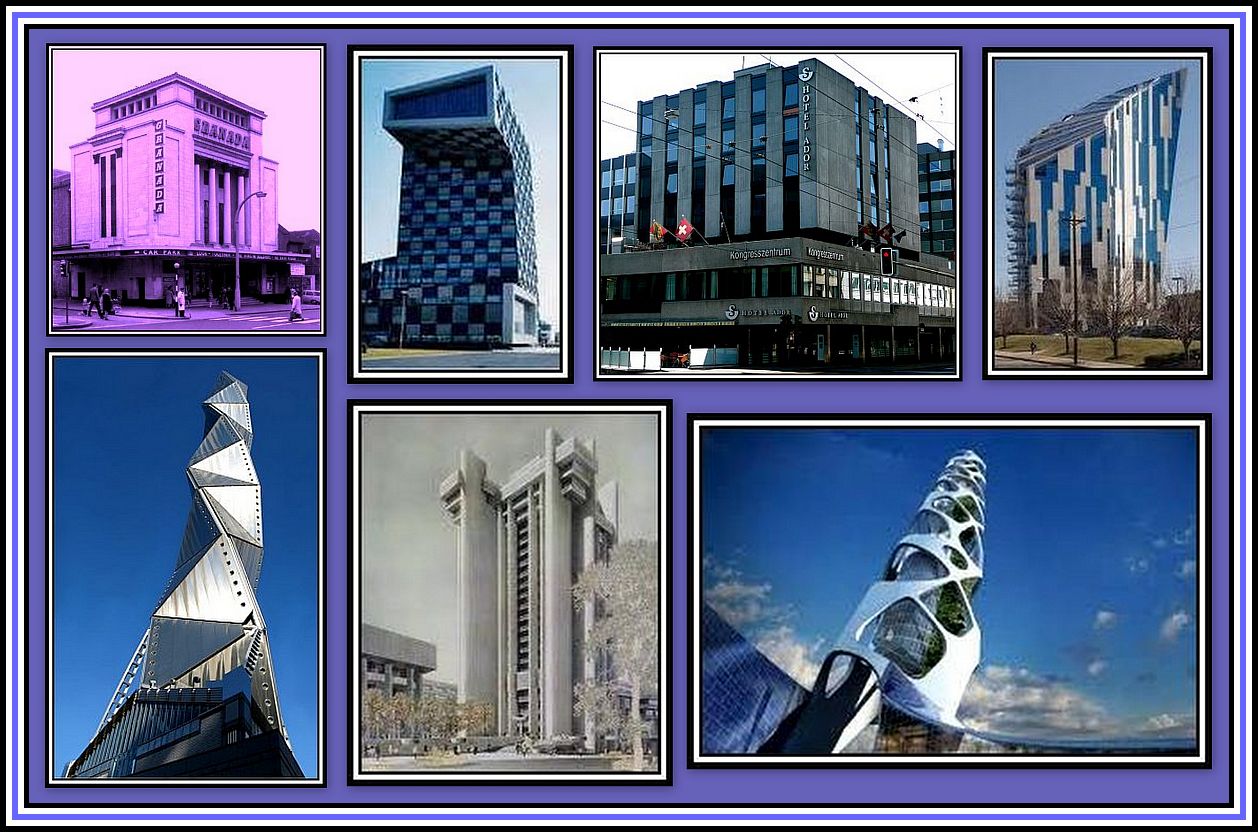


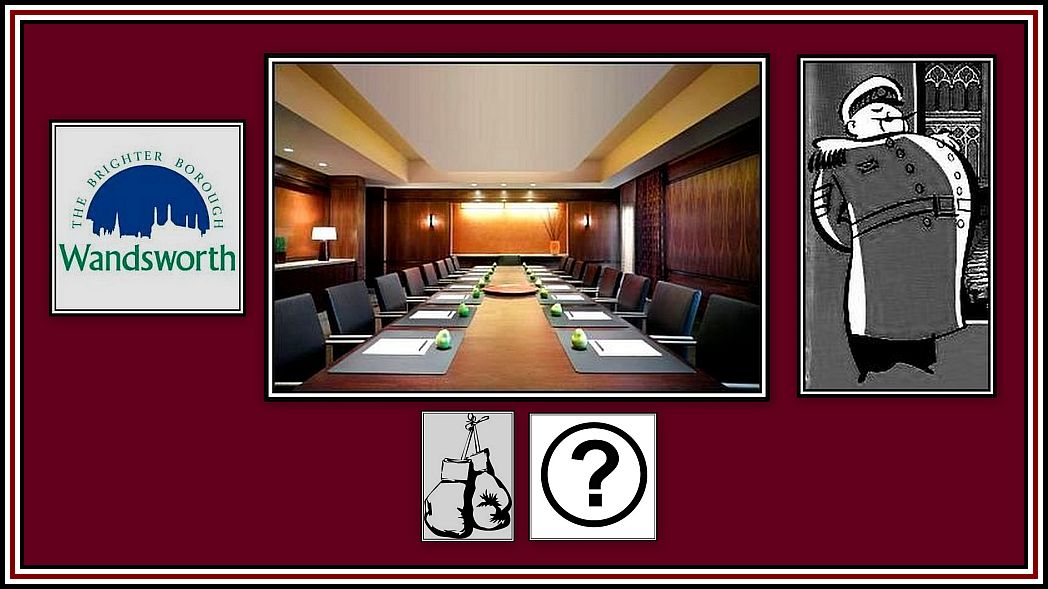
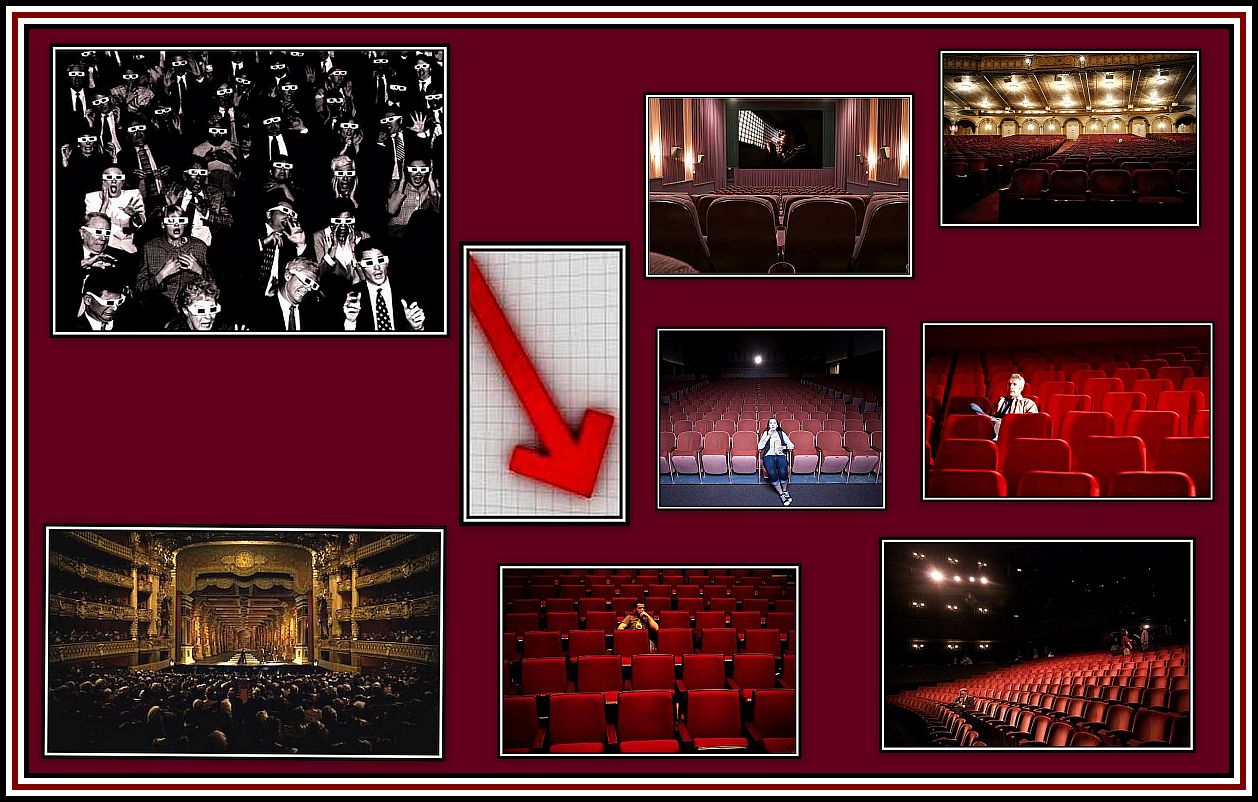
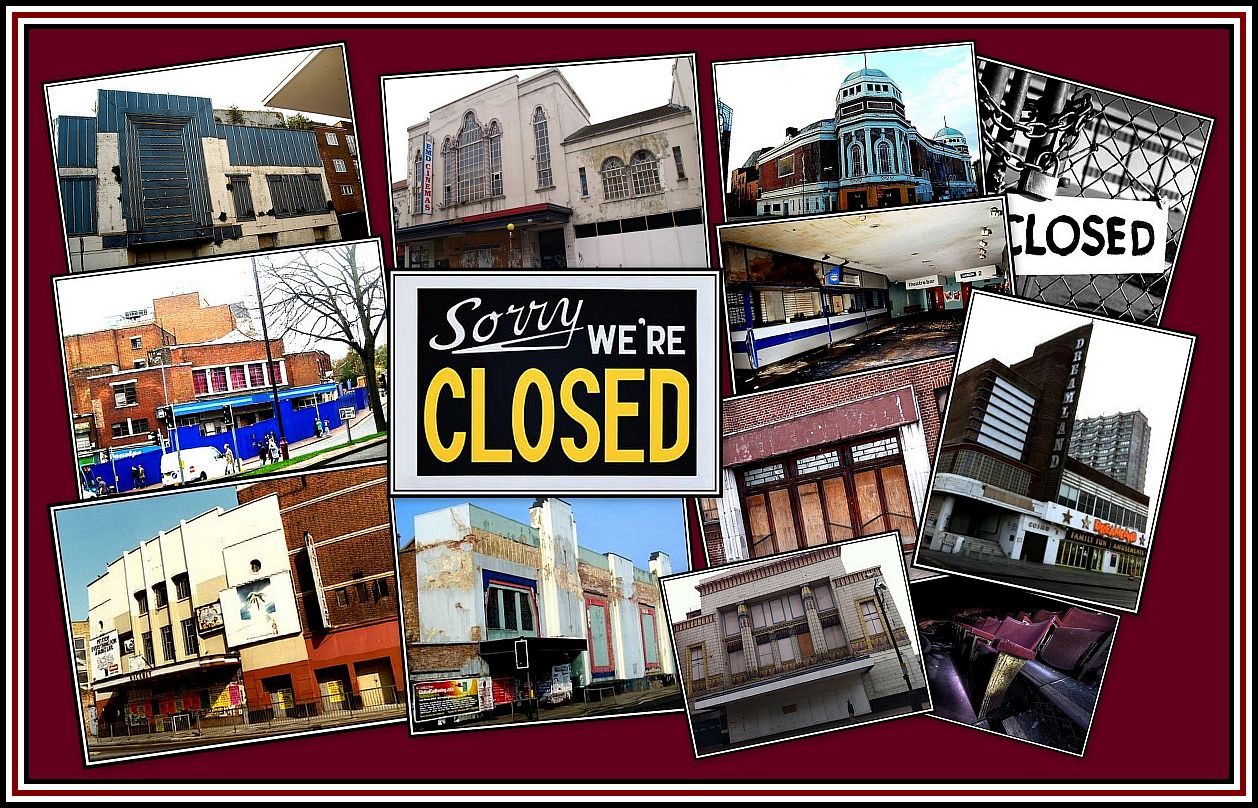

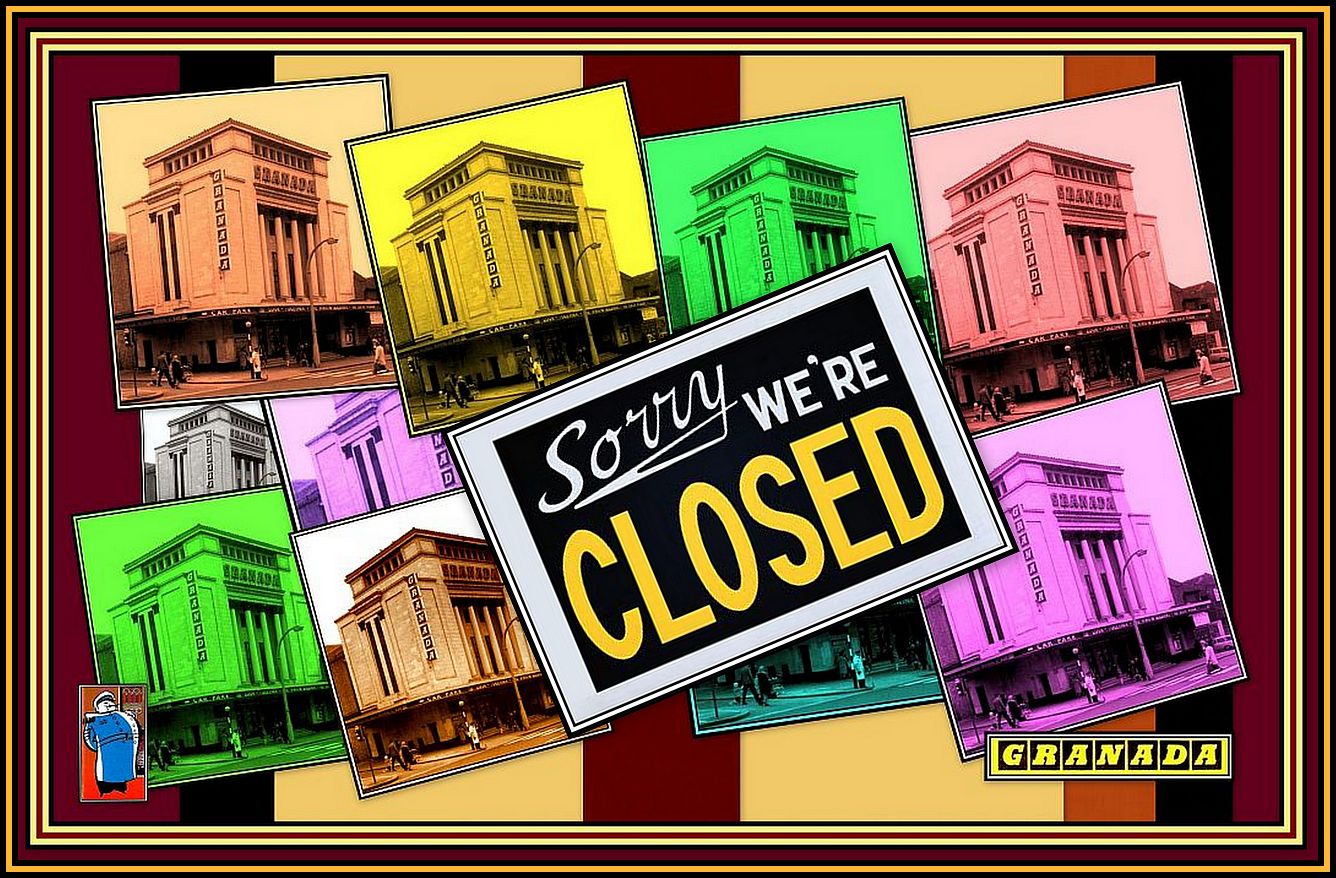

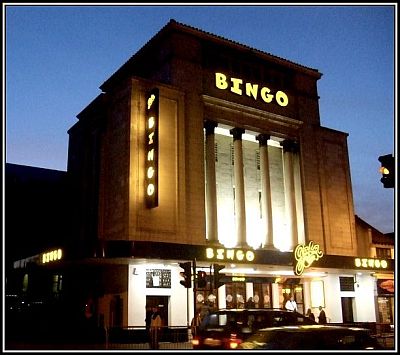
Thank you for a fascinating look at the Granada in Tooting. We had been listening to Robbie Cleaver’s recording of the Wurlitzer organ this afternoon while working on our own 3/15
Wurlitzer. The surviving London playhouses amazed me on my 1996 and ’97 trips. Glad these
beautiful theaters are in Britain—were they in the US, they would have been demolished years ago.
As theaters are impossibly difficult to repurpose, I am happy to see bingo might be keeping the doors open these days. As you know, the best theatre organists are Brits! Richard Hills is an incredible organist and a really fine gentleman—he played our organ on one of his visits.
Keep up your work on theater history!